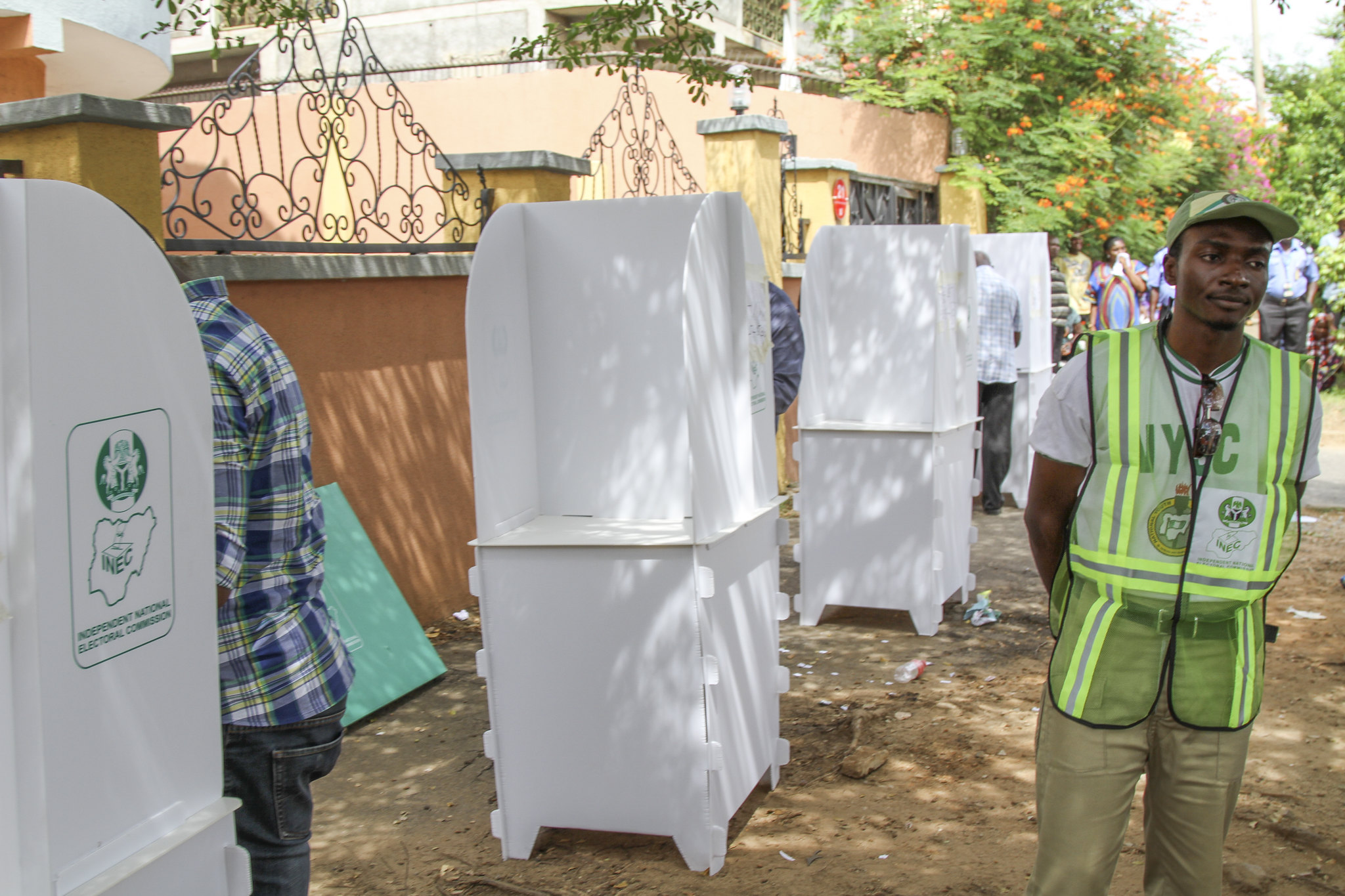Nigeria is still suffering from widespread corruption, despite government promises to crack down. Uche Igwe writes about how this is affecting Nigerians ahead of the upcoming presidential elections.
In January 2023, the global anti-corruption watchdog Transparency International released its annual corruption perception index, which ranks the perceived level of public sector corruption across 180 countries worldwide. This year’s report painted a grim picture that revealed that many countries have failed to make any progress in the fight against corruption since 2017. Nigeria is one of those countries that fell into this category despite being led by a government that promised radical reforms and a President with perceived anti-corruption credentials.
Mohammadu Buhari, a former military ruler, was elected in 2015 after he defeated incumbent Goodluck Jonathan partly because he promised to stamp out corruption from Africa’s biggest economy. Buhari continues to receive accolades across the continent as an anti-corruption icon. Yet despite the tough rhetoric and grandstanding, anti-corruption has become a weapon deployed for party political ends and corruption remains, in Buhari’s own words “deeply embedded” in Nigeria.
Corruption and security
The report reveals a clear connection between violence and corruption, something that is rarely interrogated. The Nigerian experience confirms that governments plagued by corruption lack the capacity to protect their people from criminality and insurrection. Despite the government spending billions of dollars (eight trillion naira) in seven years to fight insecurity at both the national and sub-national levels, security continues to worsen.
With increasingly weak institutions and poor oversight, Nigerian security forces are not trusted by the population to be neutral and professional in the performance of their duties. This contributed to the widespread protests seen in 2022 against police brutality known as #ENDSARS, which almost brought the country to a halt.
Cases of banditry, kidnapping and terrorism have become frequent across the whole country. The security agencies have not been able to adequately respond leaving some parts of the country under the control of terrorists and bandits who collect ‘tax’ from local farmers. There are even instances where the kidnap victims spoke of collaboration between the state security agencies and the kidnappers after their release.
Nigeria’s poor performance was expected
To many analysts, the grim performance of Nigeria was unsurprising and points to the unsavoury situation in the country. In 2022 alone, media reports estimate about 4,545 people were killed while another 4,611 were kidnapped by non-state actors. Gunmen have attacked several government buildings and churches across the country, leaving many people dead.
Terrorists, bandits and criminal organizations across the country have been emboldened while citizens live in constant fear and corrupt officials thrive in impunity. So far, the fight against insecurity has yielded limited results. The Government Defense Integrity Index published in 2020 revealed that Nigeria faces a high risk across its defence institutions with minimal controls in operations. The country ranks 143 out of 163 on the Global Peace Index in 2022, alongside nations like Iran, Cameroon and Colombia.
Three points dropped
Some sections of the media and civil society have tried to portray the change in ranking as an improvement in Nigeria’s fight against corruption. This inference is false and misleading. A change in ranking is an inconsequential factor dependent on the performance of the other countries ranked. Nigerian moving from 154th to 150th does not amount to progress in any way. The Index’s score for Nigeria remained at 24. This is a regression from the score of 27 that the index gave Nigeria during the Jonathan administration.
For the score to drop by three points under an administration that was elected on a promise to fight corruption is disappointing.
Presidential elections as a referendum
With Nigeria’s Presidential elections occurring on 25 February, many observers are keen to know what effect people’s frustration about corruption will have on their voting preferences. At least two of the top contenders for the office of the president have allegations of corruption associated with them.
A section of the population led by vocal, media-savvy young people is hopeful the long-awaited change may be on the way. Many of these young people are unemployed partly due to the impact of corruption on the economy. How they vote will go a long way to deciding the next president of Nigeria.
Photo credit: Marco Verch used with permission CC BY 2.0






I agree with the authors claim. we are hopeful that the forth coming elections will bring about transformation in Nigeria.